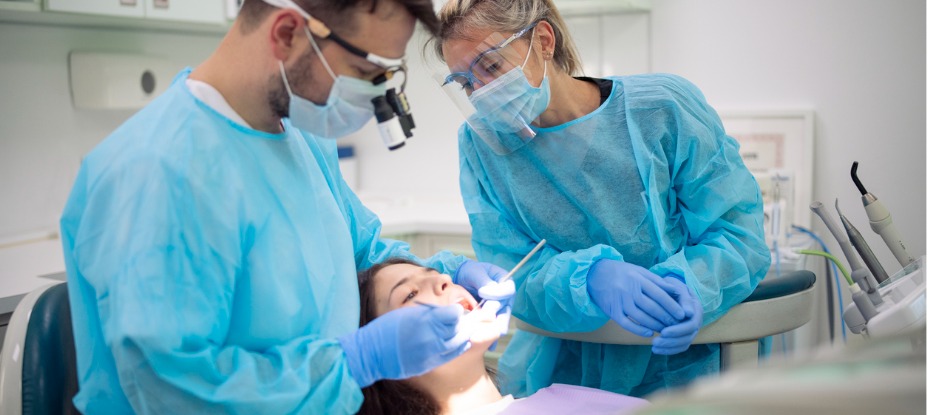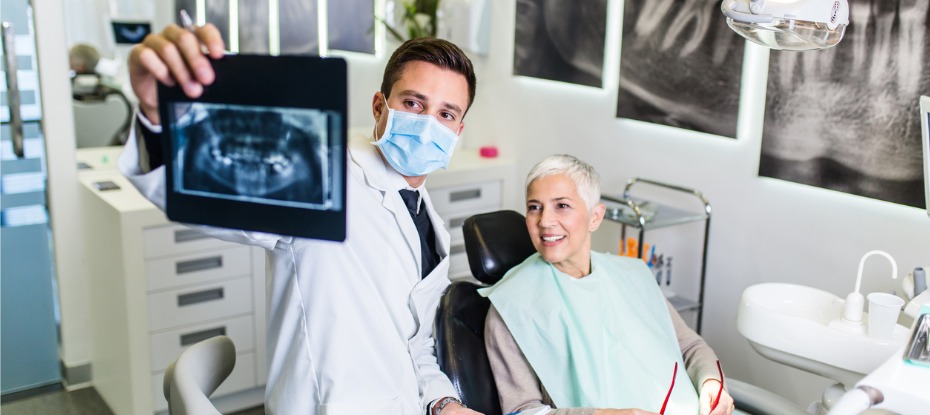
The value of your smile can’t be understated. Our smile contributes to our confidence, self-esteem and the first impression others have of us. Seeing your dentist regularly can improve your dental and general health in the short and long term. Despite all the benefits, around half of all Australians don’t go to the dentist even once a year. Find out how a trip to the dentist for a check-up every six months can benefit you.
Importance of Regular Check-ups
While daily brushing and flossing is the best way to look after your dental hygiene, it’s imperative that you have regular check-ups with the dentist.
Cleaning - A dental surgery can give your teeth a superior clean compared to your daily at-home cleaning. Food and drink causes stains on teeth that can cause them to turn yellow. A toothbrush may not remove stubborn stains, hardened tartar and plaque build-up which can discolour teeth and cause gum disease. A dentist has better visibility than a patient and the tools necessary to remove the tartar and plaque and polish teeth to a bright shine.
Patients Aren’t Always Aware of a Problem - Not all dental problems are painful. Many people wrongly assume that because they aren’t experiencing pain or discomfort, their teeth and gums are in good condition. But some oral health problems can’t be seen or felt. Some conditions are even invisible to the dentist which is why an X-ray is needed to identify any problems that lie beneath the gum line.
Saves Money in the Long Run - The cost of a dental check-up every six months will be far less than it costs to fill cavities, a root canal, extraction or surgery.
Detection of Serious Health Problems - Oral cancer is more common than people think. In the early stages, a dentist is more likely to detect that potential cancer and refer a patient for further investigation. Early detection is important for fighting the disease and having the best chance at a full recovery.
The saying ‘Prevention is better than the cure’ certainly runs true for oral health. Many oral health problems are attributed to poor oral health practices. Brushing and flossing teeth for a few minutes twice a day and a regular check-up at the dentist are far easier and cheaper than treating a case of gum disease or decayed teeth.
What Happens During a Dental Check-up?
A dental check-up is rarely as bad as people assume it will be! Here’s an idea of what patients can expect when coming in for a dental check-up.
Examination
The dentist or dental hygienist will begin the appointment with a physical exam of the mouth. Using a small mirror inside the mouth, they will check the teeth and gums for signs of gum inflammation and tooth decay before proceeding with cleaning the teeth.
X-Rays
Depending on when you last had X-rays taken of your teeth, it may be time to have another set of X-rays taken. These are important to uncover any hidden problems as mentioned previously, like decay, gum disease, and infections.

Cleaning Process at the Dentist
A large part of a dental check-up appointment is devoted to cleaning teeth. Known as a ‘scale and clean’, a professional dental clean can achieve cleaner teeth than you can at home by simply brushing and flossing. A dentist will use a pick or scaler to scrape off the build-up of plaque and calculus on teeth. Depending on your dentist, your teeth may be polished with a slow-speed, soft rubber cup filled with a special tooth-polishing paste. The spinning rubber cup cleans teeth to a smooth glossy finish. Next is the flossing between teeth to remove any remaining plaque or toothpaste.
A rinse using a liquid containing fluoride helps remove the remaining debris from the mouth. The fluoride treatment is the final step of the process. The gel or paste is added to a mouthpiece which fits over teeth and left in place for a minute or two. Most dentists advise patients against eating or drinking half an hour after the fluoride treatment. Fluoride helps in the fight against cavities for several months.
Education
A dentist will usually ask a patient if they have any concerns. This gives the patient an opportunity to ask questions about an issue that may be bothering them. During an appointment, a dentist may educate a patient about how they can prevent future problems. The advice might be as simple as changing the way a person brushes their teeth through to a referral to a specialist.
Benefits of Regular Dental Check-Ups
Many people think going to the dentist is just to check that there are no tooth cavities that need filling but there is a long list of reasons why you should go regularly.
There’s nothing quite like a professional teeth clean. Your tongue can feel the difference between before and after clean teeth. Teeth are left feeling shiny and smooth after a scale and clean.
After a dentist appointment that includes x-rays, you can enjoy peace of mind knowing you have received a clean bill of dental health. Your dentist has had a look below and above the gum line and provides reassurance that there were no signs of malignant tissue that need further investigation.
Having a regular check-up means that if any gum disease is found, it’s picked up earlier rather than later when it becomes more difficult to treat. With teeth and gums, damage is often permanent because they don’t heal like other parts of the body do. Diagnosing gum disease early can potentially save a tooth.
It’s not just your oral health that you’re helping with regular dental check-ups, your general health can benefit too. Having your teeth cleaned regularly can reduce the risk of heart disease and stroke.
Regular cleaning reduces inflammation-causing bacteria which improves the blood vessel function in the body.
When you have clean, shiny teeth, you’re more likely to smile and have better self-esteem. For people who aren’t happy with their smile, a trip to the dentist is the opportunity to talk about options such as teeth whitening or straightening. A check-up appointment gives people the opportunity to ask their dentist questions about what’s available and ask for their recommendation for solving an issue.
Attending regular dental appointments helps instil good habits in children. At the dentist, your child will be shown correct brushing and flossing methods and understand how important it is to look after their teeth now and in the future.

Regular dental appointments mean your dentist can keep a check on progress and refer you or your child to a specialist if needed. Seeing a specialist sooner rather than later can fix a problem before it advances or provide patients with more options when detected early. In the case of orthodontics, a younger child has the option of a jaw-widening appliance but if they wait until their teenage years to see an orthodontist, their palate may have fused so this option is no longer available. Sometimes there is a small window of time to treat a problem or be referred to a specialist for the best long-term outcome.
How Often Should You Schedule a Dentist Appointment?
The Australian Dental Association (ADA) recommends you have six-monthly preventative dental appointments. The check-up, clean, fluoride treatment and x-rays if needed will help keep your mouth healthy and pick up any issues early so they are easier to treat. Some people may need to see their dentist more regularly than every six months, and someone with an oral health concern may be recommended to visit more often. Other people who are in the low-risk category may be advised that an annual check-up is enough.
Our Extras Dental Cover is perfect if you’re getting into a regular dental care routine, so if it’s been a while here’s your reminder to book that appointment in! Many dental surgeries have long wait times so you’re unlikely to be able to book a check-up in the next week or two. Booking an appointment well ahead also means you’re more likely to get an appointment time and day that suits you.